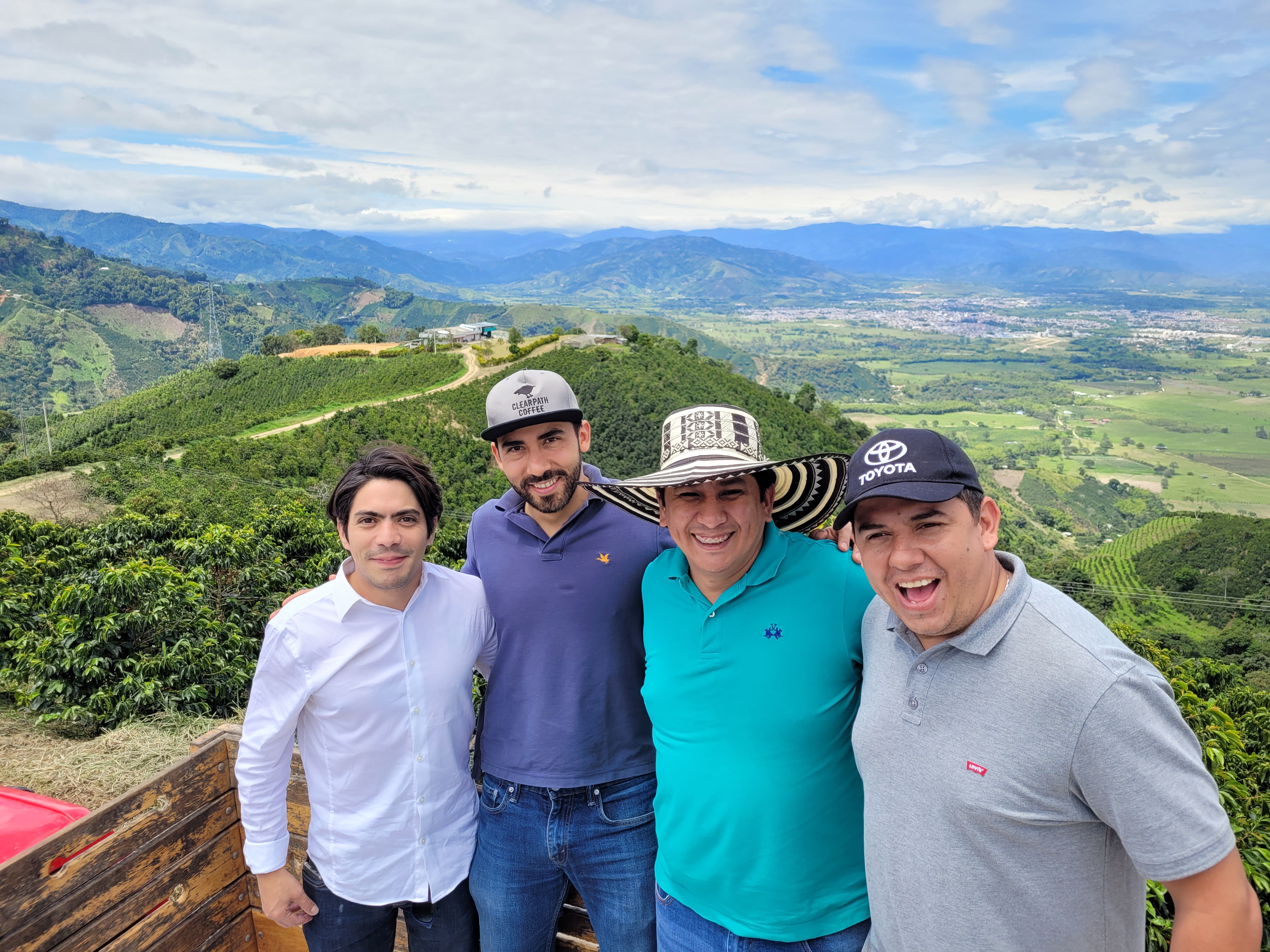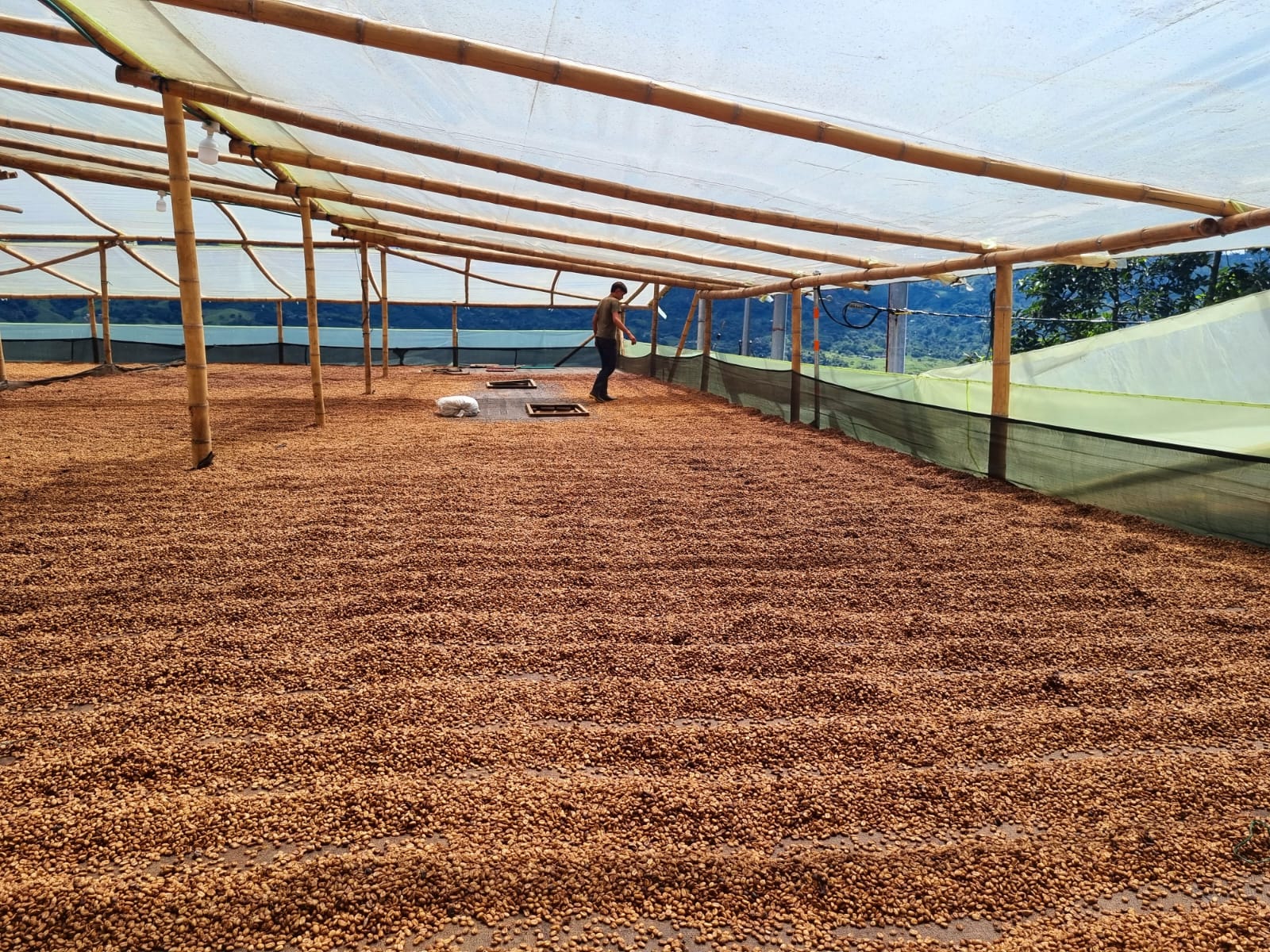Unlocking the potential of Colombian coffee farmers
From the moment it was founded in 2016, Clearpath Coffee’s overriding goal was to improve the lives and livelihoods of coffee farming families in Colombia.
“It may sound a little romantic, but the initial idea was to create a positive impact through business,” says Founder and Managing Director Vicente Mejia from his home in Medellín.
The region of Huila where the company’s coffee is grown, had struggled for years with violence and the prevalence of illegal agriculture. But based on his experience in international agricultural product sales, Vicente identified an opportunity to support farmers to build a more prosperous and peaceful future.
“I was working for a brokerage firm importing crops such as corn, beans and lentils into Colombia from the US Argentina and Brazil. It was a successful business, but I wanted to use my knowledge to boost the local economy and create greater returns for farmers in the value chain through exports.”
Driven by this purpose, he identified a huge international market for the kind of high-quality coffee that Colombia excels in but farmers rarely benefit from. Before working with Clearpath many farmers struggled to access those markets and, if they did, they rarely achieved the price their crop deserved.

CFC Investment Manager Ernesto Daza Lacouture, who guided our financing of Clearpath, explains: “They help farmers understand the value of, and benefit from, the quality of their product. Whereas previously they may have sold it at the standard market price, Clearpath ensures they achieve the premiums their coffee merits and can build viable long-term businesses.”
The company has developed an innovative model to help farmers take advantage of the quality of their coffee, which scores 84 or more on the cupping scale and is therefore regarded as a speciality product.
Vicente describes the model “co-exporting”. In practice this means coffee farmers become partners in the export side of the business.
“We buy their coffee for the market price and then pass on the premium once we sell it as a speciality coffee, which generates an additional income of between 25% to 35%. We provide 100% transparency for the farmer in terms of who our client is, how much they’re paying us, the costs of our operations and how much we’re paying them. It also gives farmers insights into the exporting process and what international buyers are looking for,” says Vicente.
On the client side, Vicente and his team use their experience in international sales to provide the best service possible. “We make everything as easy as possible for the client. From providing samples to giving clear information about where the coffee comes from.”
As brands look to strengthen their socially and environmentally sustainable credentials, the ability to connect consumers to the origins of a product through this kind of traceability is an increasingly sought after capability.
The combination of quality, transparency and exceptional service has opened the door to numerous international buyers, including Ally Coffee which imports its beans into the US and EU.
More significantly, Clearpath is enhancing the prospects of coffee farmers in the Huila region and making it an attractive career option for younger generations. The business currently works with around 1,000 coffee farming families, and Vicente picks out two stories that highlight the transformative impact it is having.
“Elkin Guzman and Rodrigo Sanchez are well known producers, growing high quality coffee, but when we met them they were struggling. The way they were selling wasn’t allowing them to develop relationships with roasters and the marketplace outside Colombia. This meant they weren’t capturing the economic value of their product. Working with us has transformed their farms, they’ve bought more land, adopted advanced processing techniques, employed more people and improved their quality of life.”
Alongside connecting farmers to more profitable markets, Vicente is committed to helping them add value to their crops and retain the additional income that generates. Clearpath is actively involved in initiatives that provide training, equipment and resources to farmers who would otherwise struggle to afford them.
For example, the company was a commercial partner in the government-funded Productive Alliances for Peace initiative from 2020 to 2023. Small groups of producers facing difficulties associated with violence and illegal plantations, were supported to buy farming equipment, while companies including Clearpath provided a secure buyer paying a premium price. The project enabled communities to build coffee storage warehouses and cupping labs, and buy mechanical driers to support the vital drying process.
Similarly, El Puente is an ongoing initiative that supports 240 coffee farming families in Huila by giving them access to a processing hub. El Puente translates as The Bridge, which represents both a physical footbridge across a nearby river that connects farmers to post-harvest processing facilities, and the connection the project provides to international markets.
Farmers bring their cherry crop so it can be efficiently dried and stored, minimising defects or a reduction in quality. The initiative is also leading the way in developing and teaching fermentation techniques, which infuses coffee with flavours to meet a growing global demand.
“We pay producers for cherry as if it is already dry parchment ready to sell, so they receive a premium for their product without having to process it or market it themselves. They can also develop skills which they can take back and apply to their own farms,” explains Vicente.
Looking ahead, Vicente wants to deepen Clearpath’s relationship with its network of growers and continue improving their livelihoods. The CFC’s investment of USD 1 million over five years will provide the cashflow to drive this and support Clearpath’s growth.
The company currently has annual revenues of USD 7 million which Vicente aims to increase by 25%. He hopes this will involve replicating Clearpath’s innovative co-exporting model in other areas of Colombia, since only around 15% of Colombian coffee crops are exported as speciality coffee.
One thing won’t change says Vicente: “We aim to be the best partner that coffee farmers can find in the marketplace.” As he noted earlier, it’s a romantic vision, but plenty of successful romances have started over a good cup of coffee.

